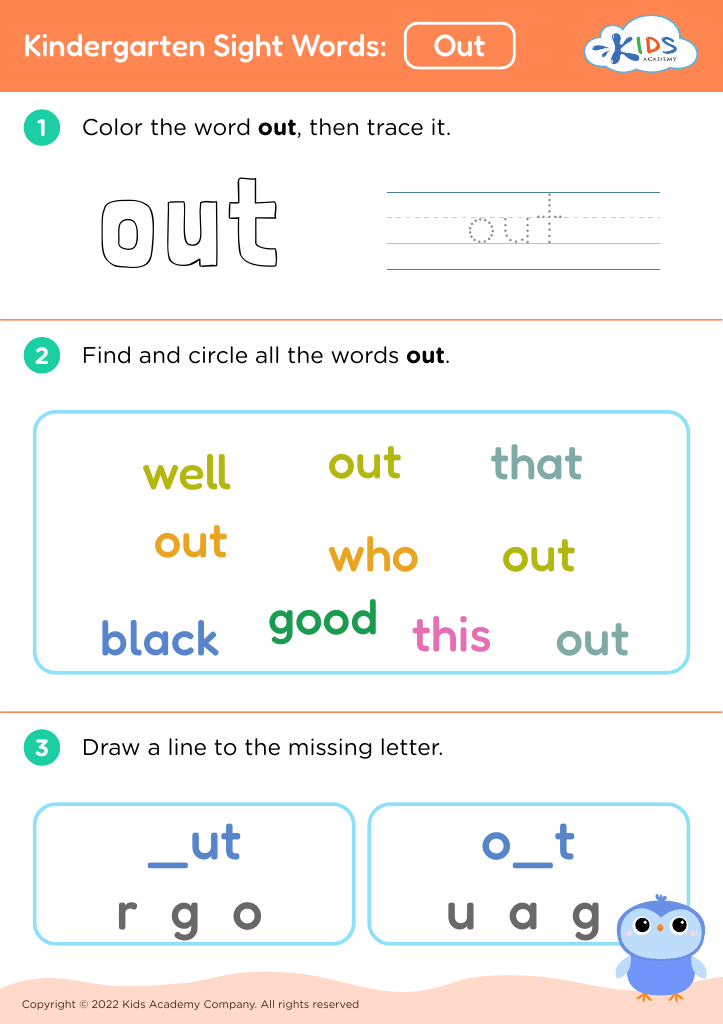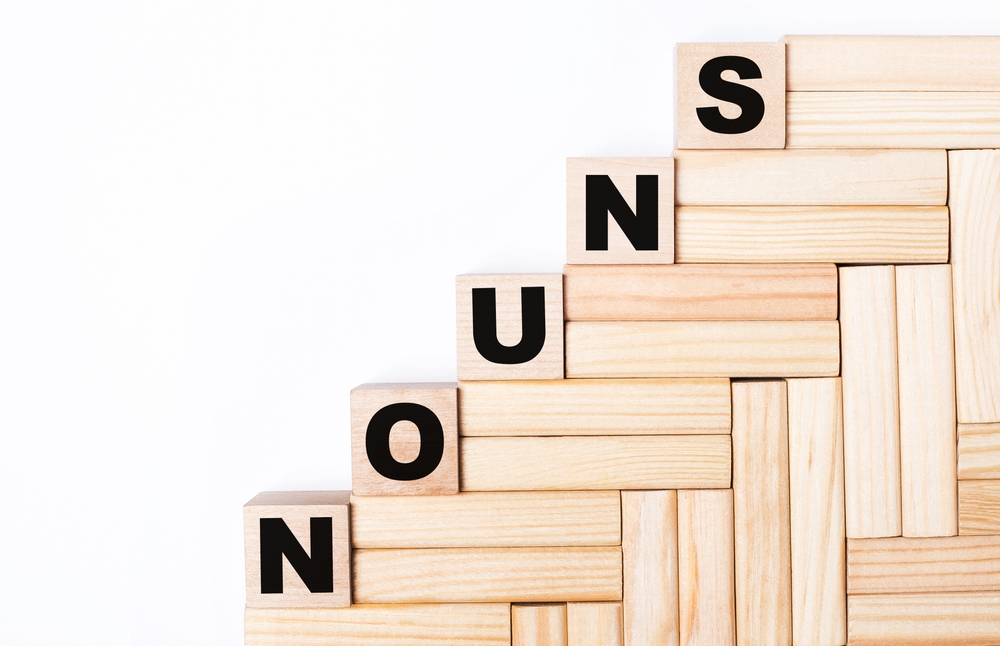Improve reading comprehension Reading Worksheets for Ages 5-9
14 filtered results
-
From - To
Unlock your child's reading potential with our specially crafted "Improve Reading Comprehension" worksheets for ages 5-9. At Kid's Academy, we offer engaging activities tailored to develop critical reading skills through fun, interactive content. Our worksheets are designed to enhance vocabulary, understanding of text, and the ability to analyze stories. Each resource helps young readers identify key ideas, make connections, and improve their overall reading comprehension. Ideal for early learners, our collection ensures that reading becomes an enjoyable and enriching part of their education. Let's make reading a joyful discovery! Explore our printable worksheets now.
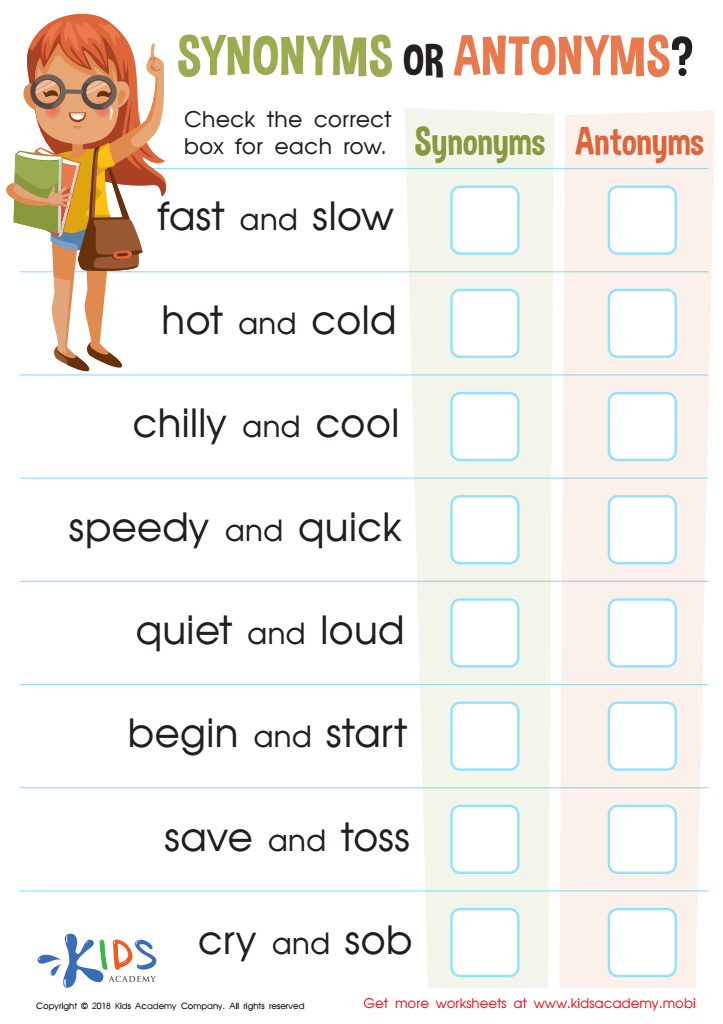

Synonyms or Antonyms: Assessment Worksheet
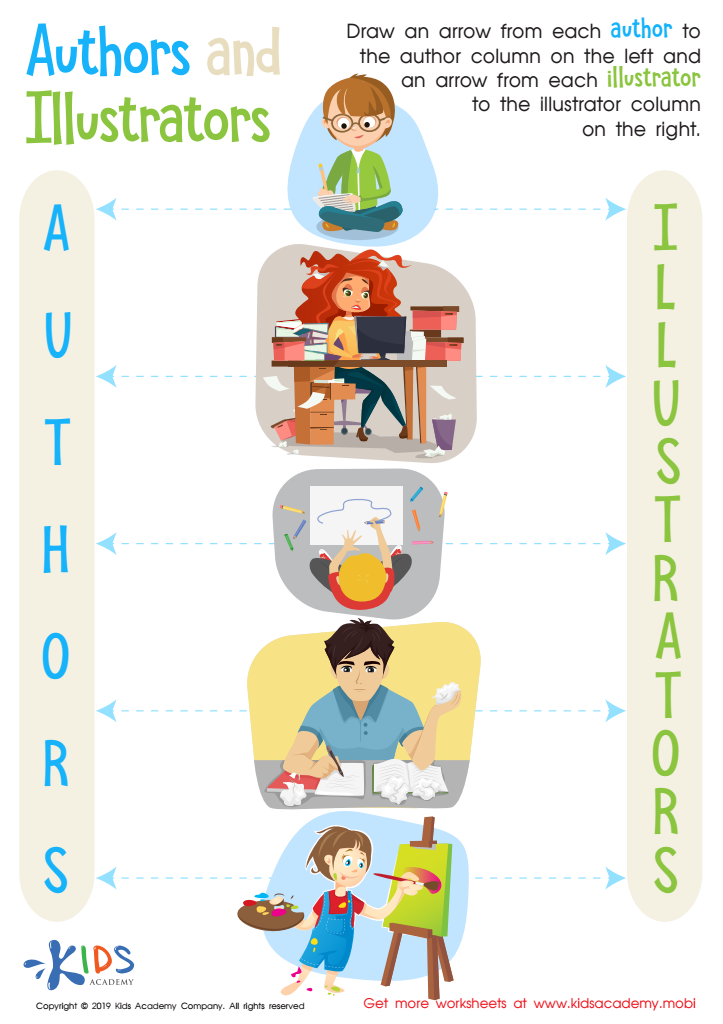

Authors and Illustrators Worksheet
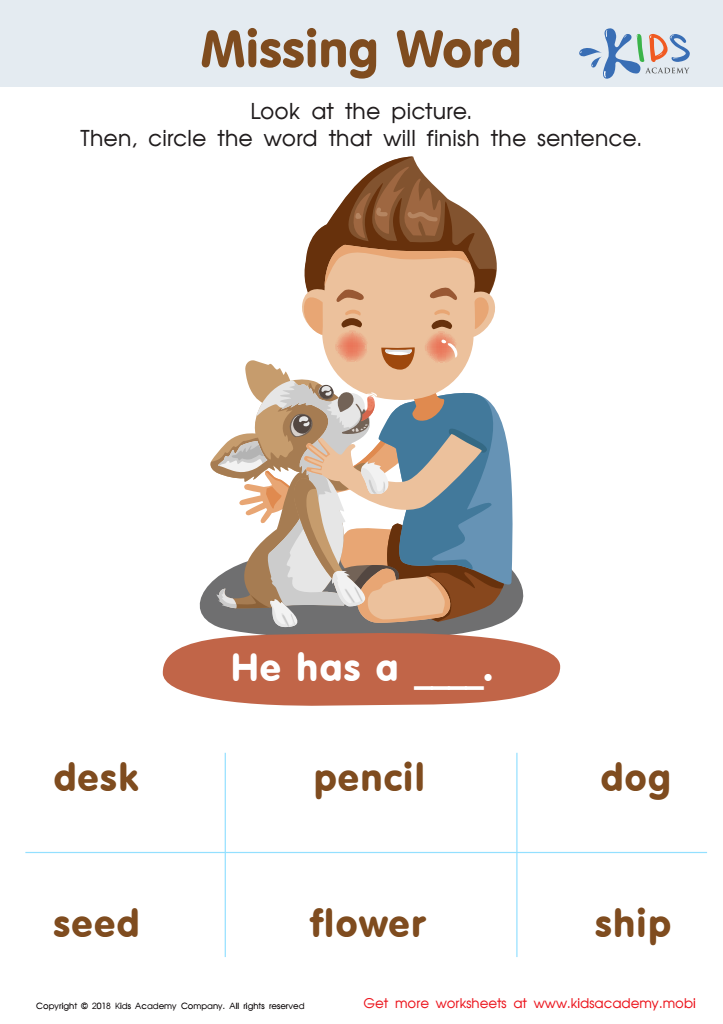

Missing Word Worksheet
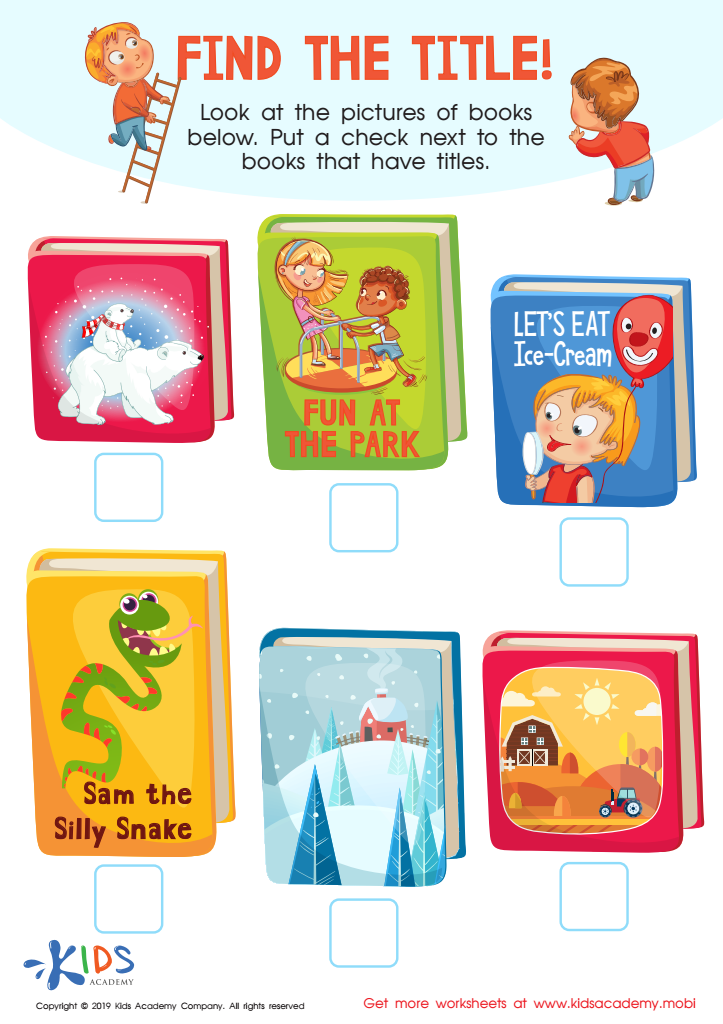

Find the Title Worksheet
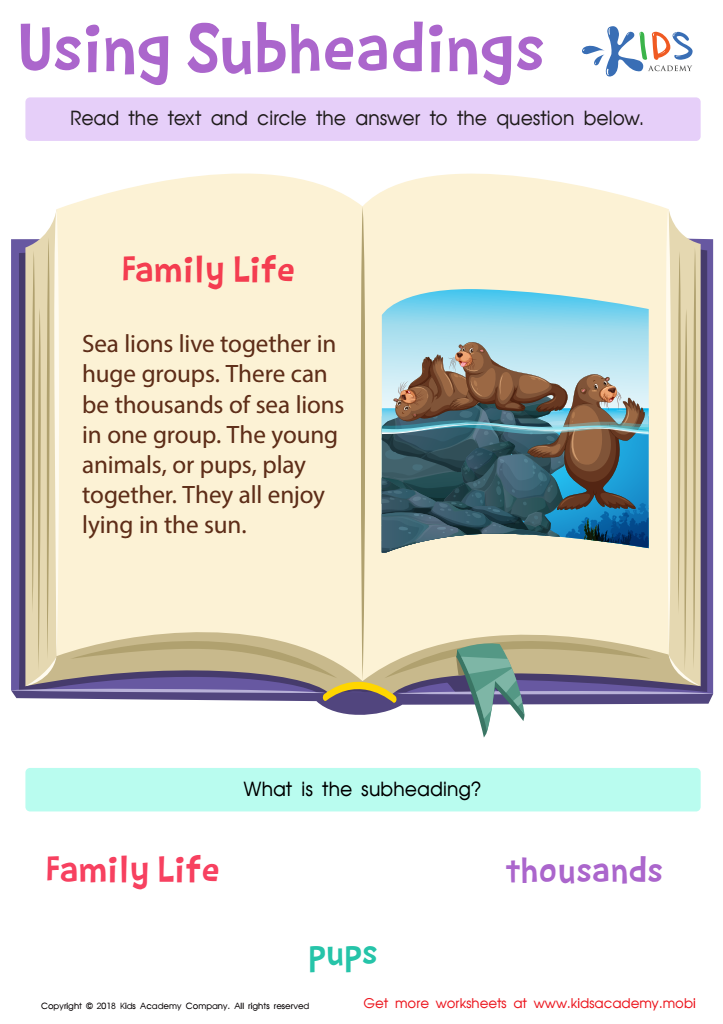

Using Subheadings Worksheet
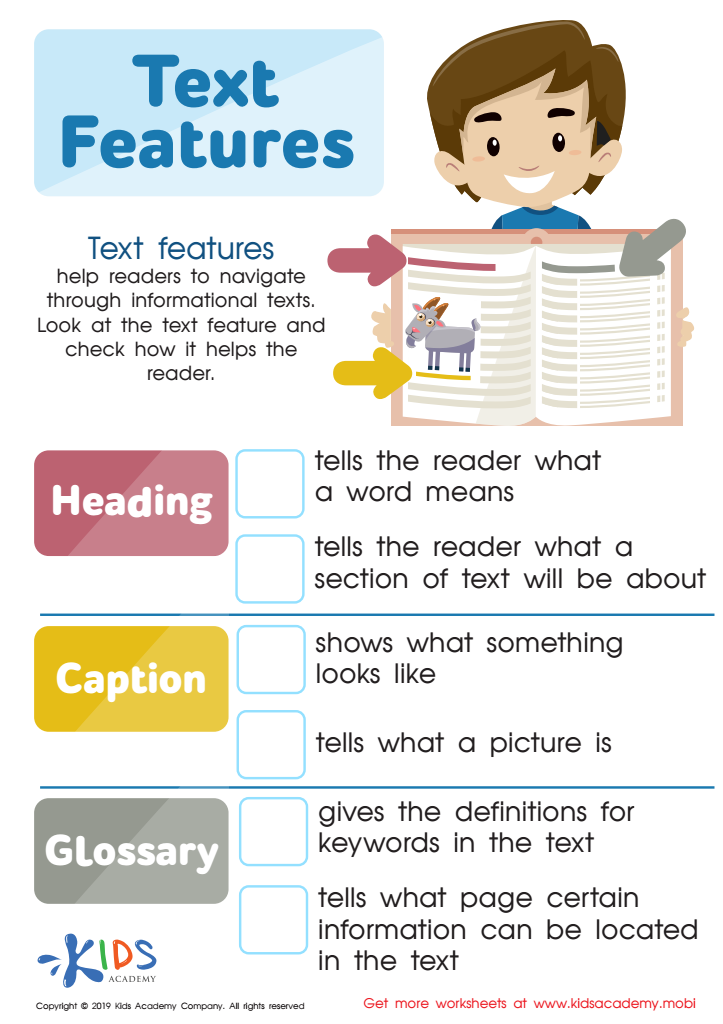

Text Features Worksheet
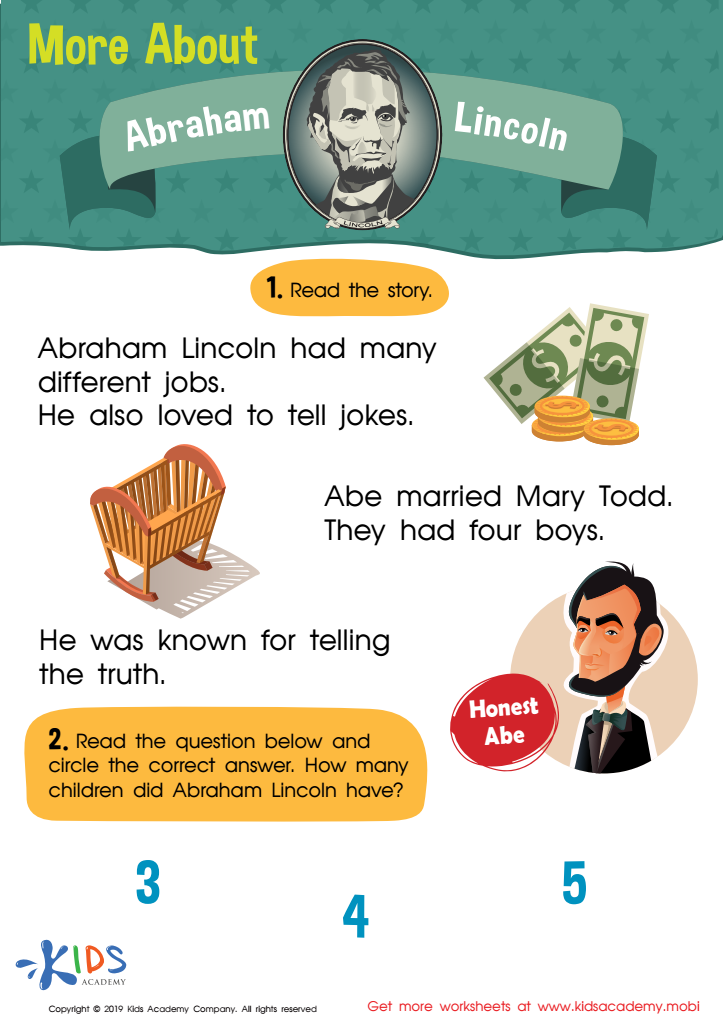

More About Abraham Lincoln Worksheet
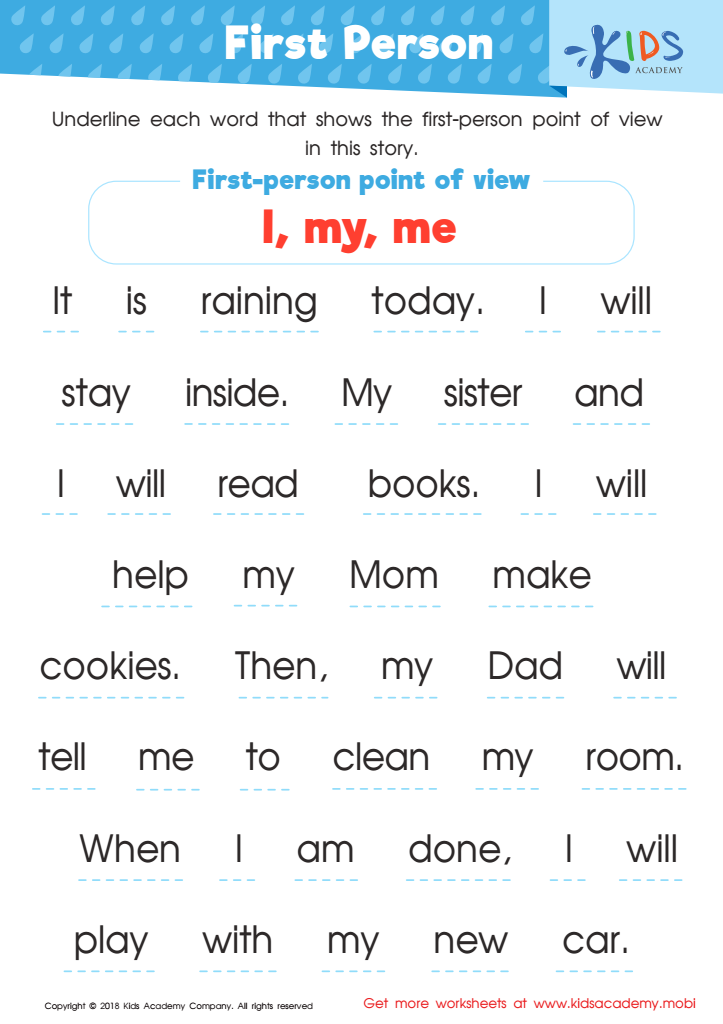

First Person Worksheet
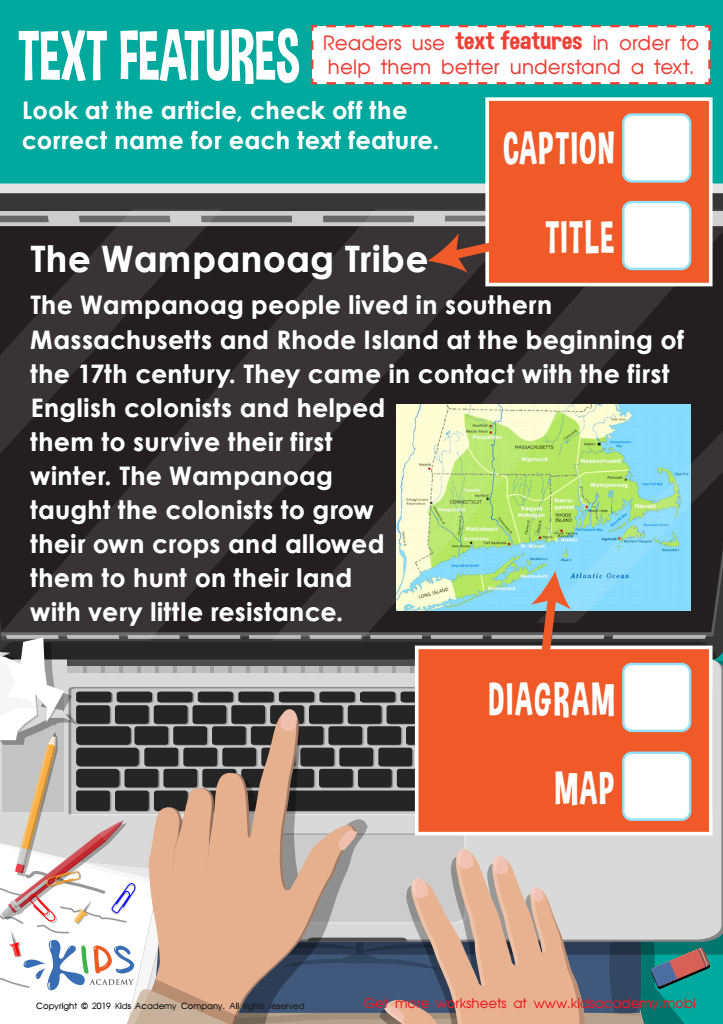

Text Features Worksheet
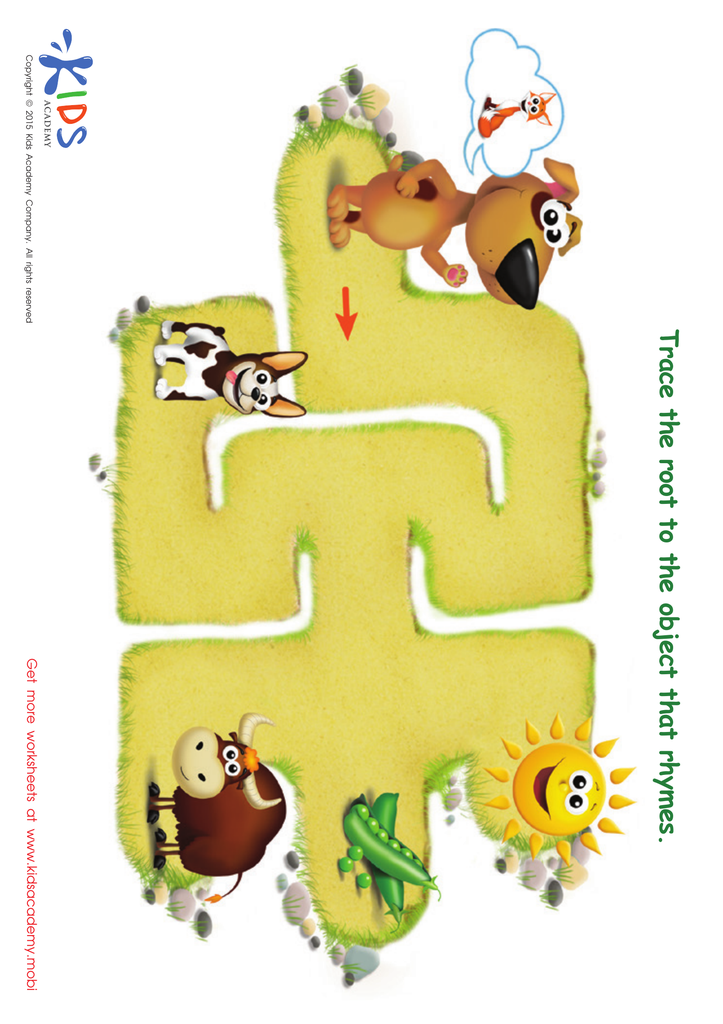

Fox Rhyming Words Worksheet
Reading comprehension is crucial for children ages 5-9 because it's a foundational skill that affects all areas of learning and future success. In these early years, kids transition from learning to read to reading to learn. If they do not develop strong comprehension skills, classroom instruction in subjects like math, science, and social studies will be much harder for them. Reading comprehension also supports critical thinking and problem-solving skills by encouraging children to make connections, infer meanings, and understand concepts beyond the text.
Furthermore, comprehension enhances a child's vocabulary and language abilities. As kids encounter new words and ideas while reading, they learn how to use context to decipher meanings and incorporate these new terms into their everyday language. This linguistic growth supports better communication skills, which are essential for both academic and social interactions.
Parents and teachers should prioritize improving reading comprehension to foster a lifelong love of reading. When children understand what they're reading, they’re more engaged and find joy in it, cultivating a positive habit that can benefit mental health and emotional intelligence. Early intervention in developing these skills can prevent future academic struggles, ultimately contributing to a more confident, curious, and capable learner.
 Assign to My Students
Assign to My Students




